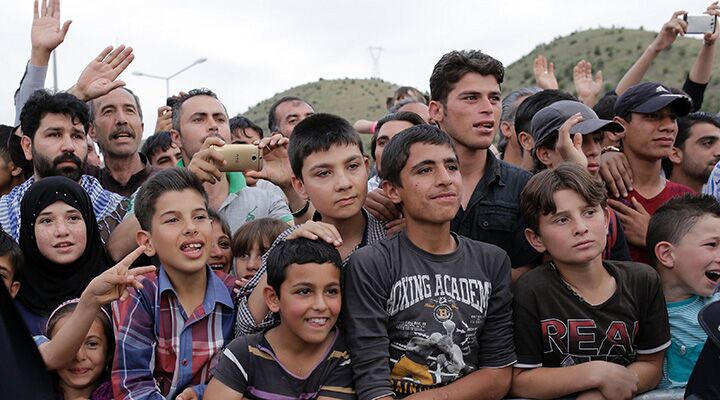
Europe’s Right-wing Reaction to the Migrant Crisis
There is no shortage of problems for European countries dealing with the migrant crisis: refugee housing, unemployment, cultural integration, the threat of terrorist attacks, etc. But in the last six months, another issue has arisen that politicians are no longer ignoring: the violent reaction of their right-wing populations.
With German Chancellor Angela Merkel’s open-door policy, Germany took in a record 1.1 million refugees in 2015, more than any other European country. Der Spiegel, one of Europe’s most influential magazines, admitted in mid-2015 that Germany had become a “nation split in two.”
On the one side is a populace showing greater solidarity with refugees than ever before. On the other is a growing proportion of the population that would like to see the migrants leave Germany, and they are not afraid to use force to see it accomplished. Here are some of the results:
The New Year’s Eve Cologne attacks, in which up to 1,000 women were reported to have been sexually assaulted by North African- and Arab-looking men, pushed Germany’s soft middle ground toward right-wing philosophies. The cruel acts by some individuals since prompted the Economist to state it has been “a miracle no refugee has yet been killed.” Below are some of the few reported incidents:
In 2015, Sweden took in the most refugees per capita in all of Europe. The 160,000 refugees who arrived—nearly an additional 2 percent of the population—prompted Foreign Policy to pronounce its crisis as the “death of the most generous nation on Earth.”
As in Germany, Sweden’s right-wing political groups have received an upsurge in attention. Many politicians try to downplay any notion of a crisis—Sweden has a proud history of welcoming needy refugees. Those who favor a change in national policy point to the following:
Both these countries are indicators to the growing tensions in other European nations. The recent terrorist attacks in Brussels will likely shift the political middle ground to the right. France’s right-wing party, the National Front, saw a surge in popularity after the November 2015 Paris terrorist attacks, which killed 130. As the Trumpet has predicted for years, Europe will be looking for new leadership—for someone they believe can handle the crisis. For more in-depth analysis of this trend in Europe’s most influential country, read “Germany, Migrants and the Big Lie.”
